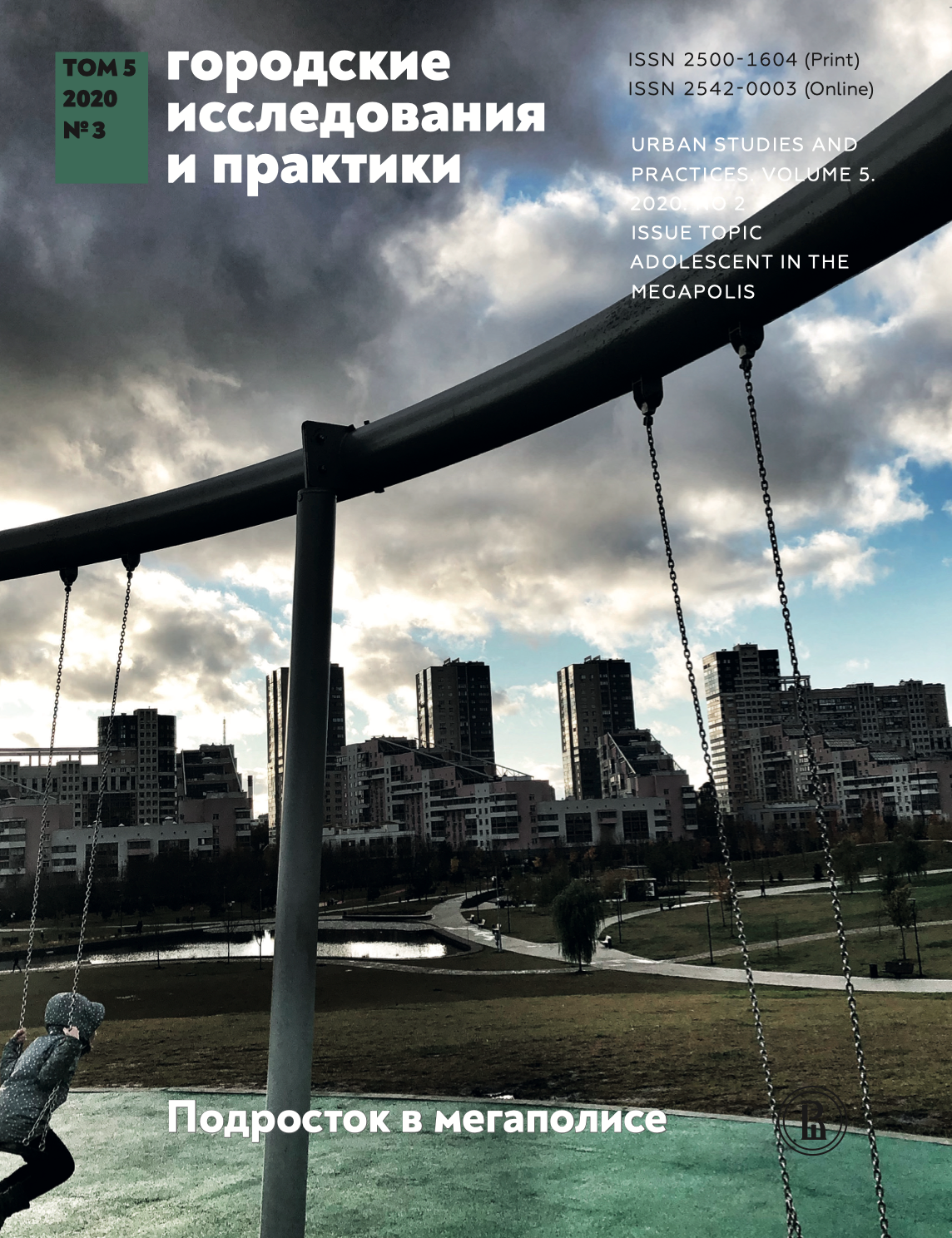The Readiness of Adolescent-Orphans for an Independent Life in a Megapolis
Abstract
Тhis article examines the readiness for independent life in a metropolis in adolescents of two different social groups: adolescents from complete families and adolescent orphans. The study uses the following methods: The Maddi Test of vitality; LSS test; Zimbardo’s time perspective questionnaire; the “readiness for independent life” questionnaire by Shinina and Mitina; the casual orientations questionnaire by Dergacheva, Dorfman and Leontyeva; and the questionnaire of selforganization of activity by Mandrikova. The research question is how the resilience of adolescents — orphans and from full families — is formed. The study sample consisted of 30 males and 30 females from 12 to 15 years old. The first group consisted of 30 adolescents from two-parent families, the second 30 teenagers living in a family and childhood assistance center. The results of the study reflect the specifics of the formation of self-sufficiency in adolescents in a metropolis. Adolescent orphans are ready to adapt to the realities of life, without betraying the importance of their own role. The qualitative features of the formation of life scenarios in adolescents from both groups were revealed. There is a positive tendency for the formation of independence of adolescents in a megalopolis through the possibility of inclusion in special programs and projects that allow adolescents to effectively cope with stressors and increase their level of resilience.
Downloads
References
Абрамов Р. Н., Антонова К. А. (2017) Медийные образы выпускников детских домов: социологический анализ публикаций региональных СМИ. XVIII Апрельская Международная конференция по проблемам развития экономики и общества (НИУ ВШЭ, Москва).
Абрамов Р. Н., Антонова К. А., Ильин А. В. и др. (2016) Траектории социальной и профессиональной адаптации выпускников детских домов в России (обзор исследовательского отчета). М.: СБ Групп. С. 30–44.
Абульханова К. А. (2012) Проблема соотношения личности, индивидуальности, субъекта // Современная личность: психологические исследования. Сер. «Труды Института психологии РАН». М.: Институт психологии РАН. С. 17–35.
Ванакова Г. В. (2017) Особенности жизнестойкости детей детского дома в младшем подростковом возрасте // Постулат. No 16. С. 18–20.
Галасюк И. Н., Шинина Т. В. (2017) Оценка детско-родительского взаимодействия. Evaluation of child-parent interaction (ECPI). М.: ИТД Перспектива.
Казарина-Волшебная Е. К., Комиссарова И. Г., Турченко В. Н. (2014) Парадоксы трансформации ценностных ориентаций российской молодежи // Социологические исследования. No 6. С. 121–126.
Коблик Е. Г. (2010) Проектная деятельность детей как ресурс развития жизнестойкости // Механизмы участия детей-сирот и детей, оставшихся без попечения родителей, в защите своих прав (проект «Голос ребенка») / Е. Г. Коблик (ред.-сост.). М.: Генезис.
Крайг Г. (2011) Психология развития. СПб.: Питер.
Логинова М. В. (2010) Психологическое содержание жизнестойкости подростков: дис. ... канд. психол. наук: 19.00.01. Современная гуманитарная академия. М.: Мысль.
Мадди С. Р. (2002) Теории личности: сравнительный анализ. СПб.: Речь.
Нартова-Бочавер С. К., Бочавер А. А., Дмитриева Н. С., Резниченко С. И. (2016) Дом как жизненная среда человека: психологическое исследование. М.: Мысль, Памятники исторической мысли.
О повышении эффективности поддержки детей-сирот и детей, оставшихся без попечения родителей (2016) // Аналитический центр при поддержке правительства РФ. Режим доступа: [https://ac.gov.ru/archive/files/publication/a/9403.pdf](https://ac.gov.ru/archive/files/publication/a/9403.pdf) (дата обращения: 21.12.2020).
Олиференко Л. Я. (2002) Социально-педагогическая поддержка детей группы риска: учебн. пособие для студ. высш. пед. учебн. заведений. М.: Издательский центр «Академия».
Прихожан А. М., Толстых Н. Н. (2009) Особенности развития личности детей, воспитывающихся в условиях материнской депривации // Психологическая наука и образование. Т. 14. No 3. С. 18–20.
Самохвалова А. Г. (2016) Социальное сиротство как фактор затрудненного общения подростка // Вопросы психологии. No 3. С. 29–40.
Шипицына Л. М. (2015) Психология детей-сирот. СПб.: Питер.

